
World
17:59, 27-Sep-2018
What makes the four female presidents of the UN General Assembly stand out?
Updated
17:29, 30-Sep-2018
CGTN
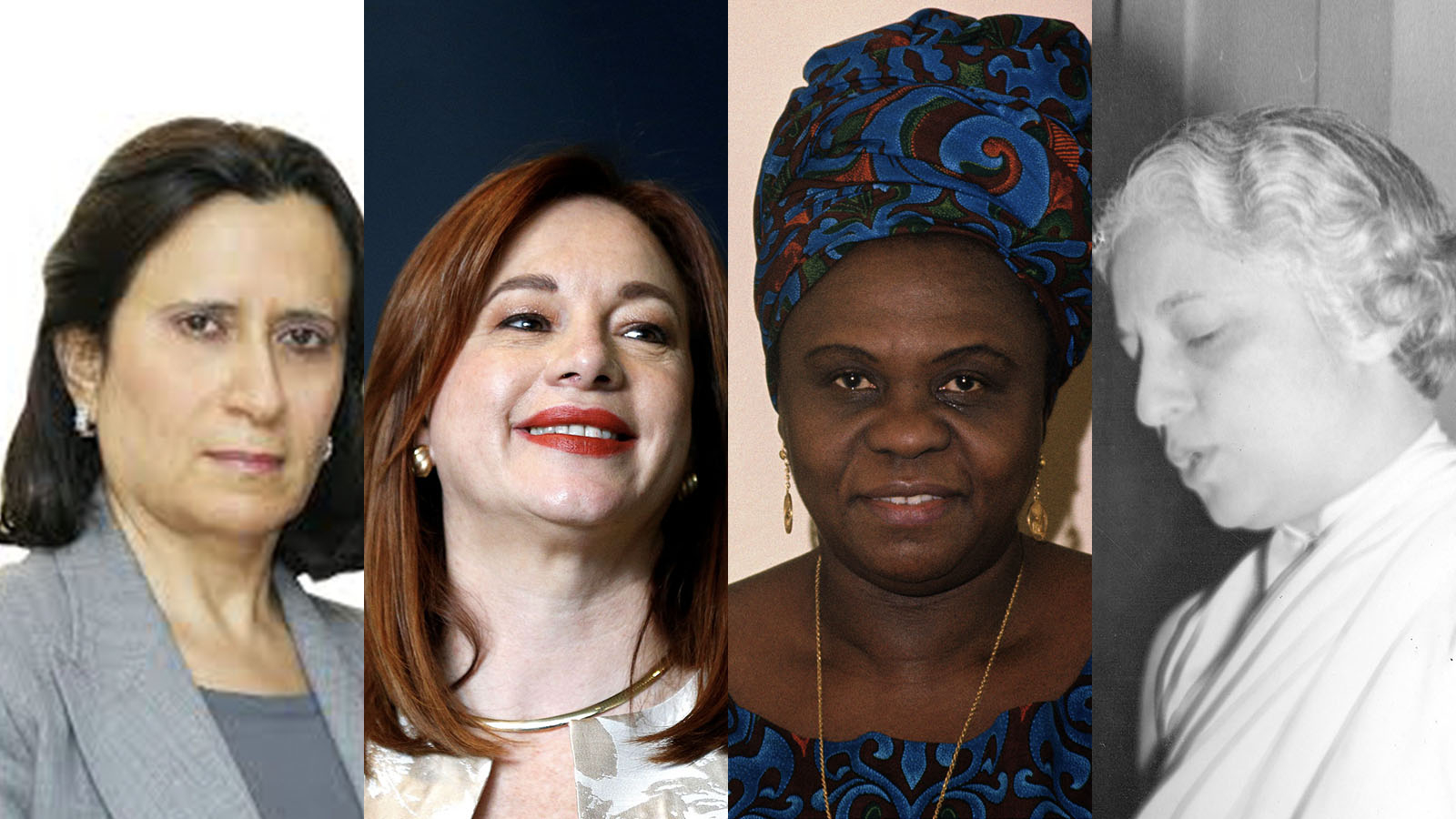
In the history of the United Nations (UN), the 193-member General Assembly has only ever had a female president four times, but how did these women become the president of the UN's top decision making body?
María Fernanda Espinosa Garcés, the 73th president of the General Assembly, opened the session on Sept. 18 by stressing seven priorities, including female empowerment and environmental issues.
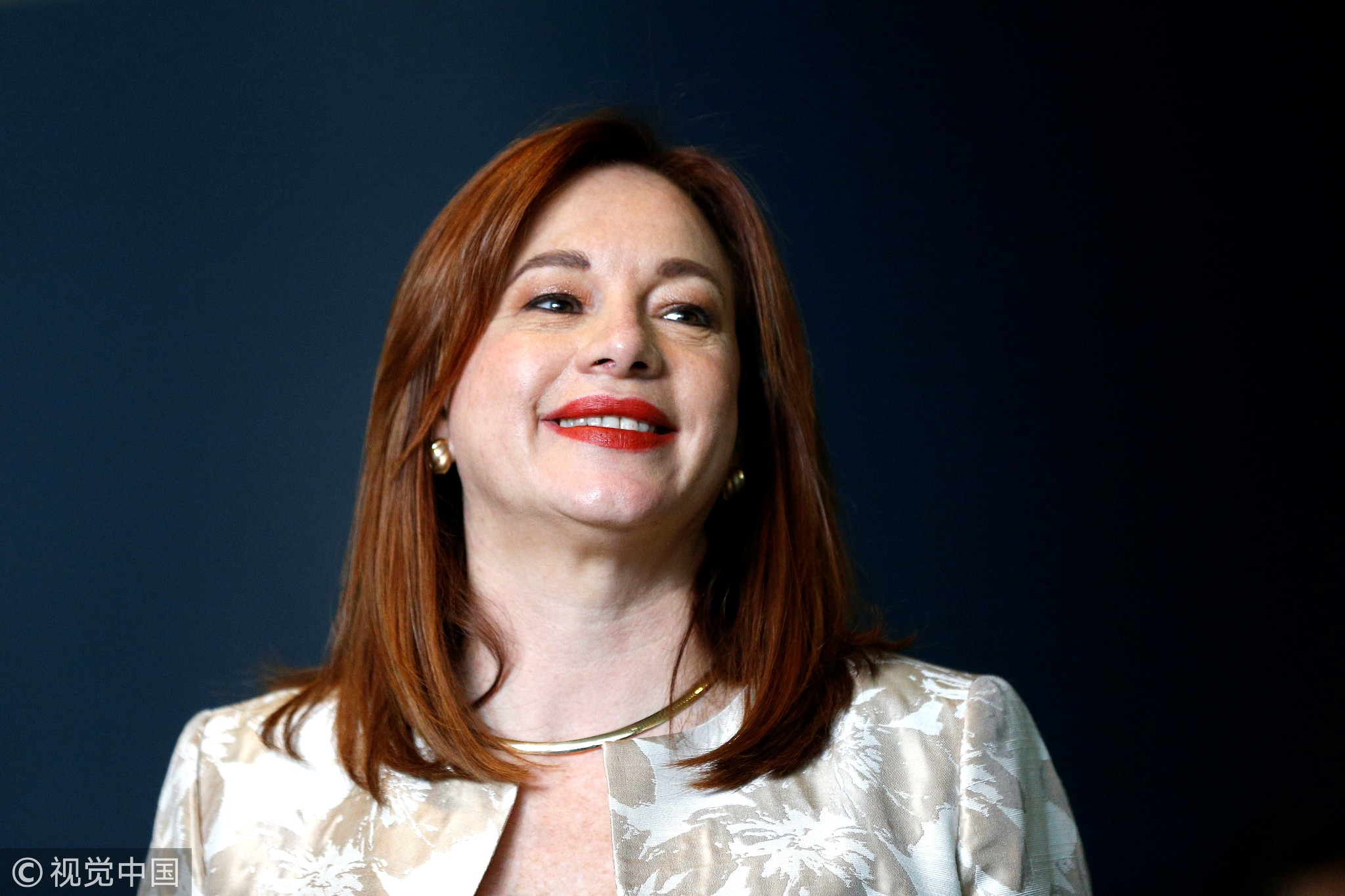
What makes María stand out are her interests outside of politics. /VCG Photo
What makes María stand out are her interests outside of politics. /VCG Photo
Besides being "the first woman from Latin America and the Caribbean to preside over the General Assembly", what makes her particularly stand out are her multiple identities: she's a poet and a writer who has published more than 30 academic articles on issues such as culture, heritage and intellectual property rights, and has served as a diplomat with a focus on human rights, racism, multilateralism, female empowerment and environmental degradation.
Although all four of the female presidents may have come from very different backgrounds, there are still several striking similarities: Besides all coming from developing countries closely tied to the English-speaking world, they have also spent years empowering women and fighting for female independence.
Vijaya Lakshmi Panditm was an Indian diplomat and politician who served as president of General Assembly from 1953 to 1954. Panditm grew up in a political family and was engaged in the struggle for India's independence. Following India's freedom from the British rule in 1947, she then became the country's ambassador to the Soviet Union until 1949.
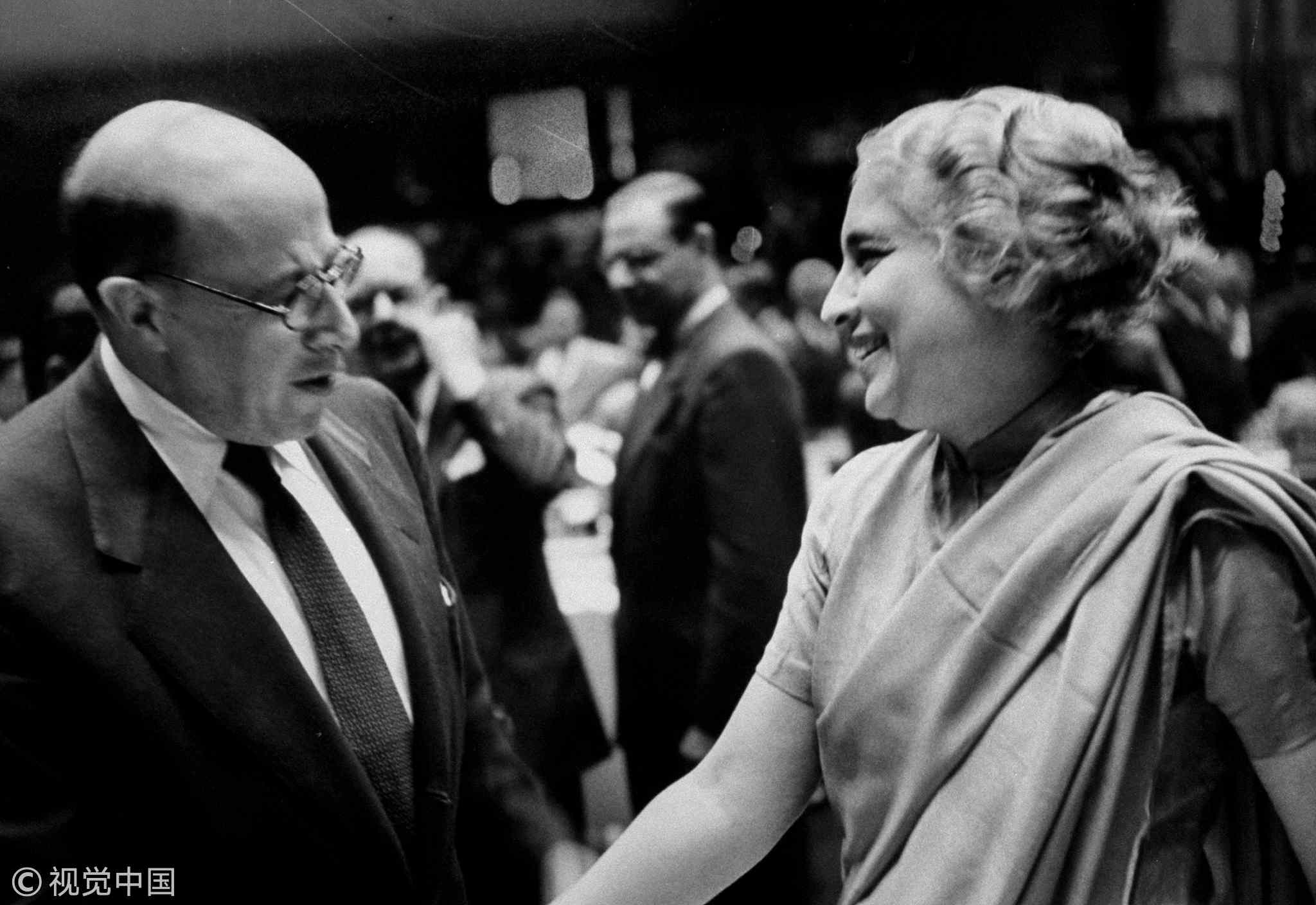
Vijaya Lakshmi Panditm was the first president of General Assembly from India./VCG Photo
Vijaya Lakshmi Panditm was the first president of General Assembly from India./VCG Photo
Angie Brooks, the only African female president of the United Nations General Assembly, was a Liberian diplomat. She held many degrees in political science, art and law. She was also the first female lawyer in Liberia and the first woman to be appointed as a justice in Liberia's Supreme Court.
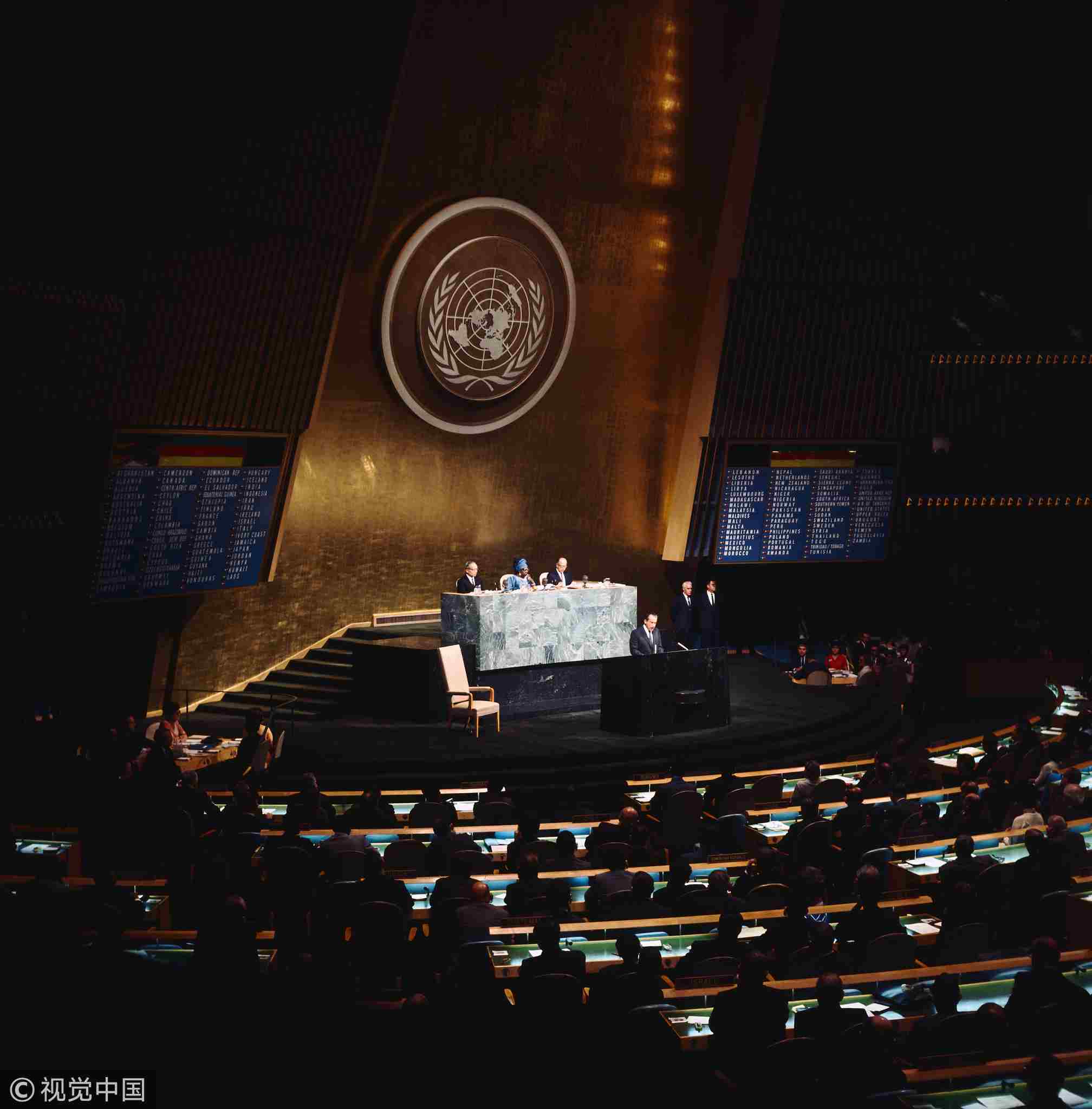
Angie Brooks delivered her speech at the 24th UNGA. Sitting behind her was then US President Richard Nixon and UN Secretary General U Thant. /VCG Photo
Angie Brooks delivered her speech at the 24th UNGA. Sitting behind her was then US President Richard Nixon and UN Secretary General U Thant. /VCG Photo
Bahrain's Sheikha Haya Rashed Al Khalifa, the third woman to preside at the UN General Assembly, was also a lawyer and diplomat. She was one of the first two women from her country to practice law.
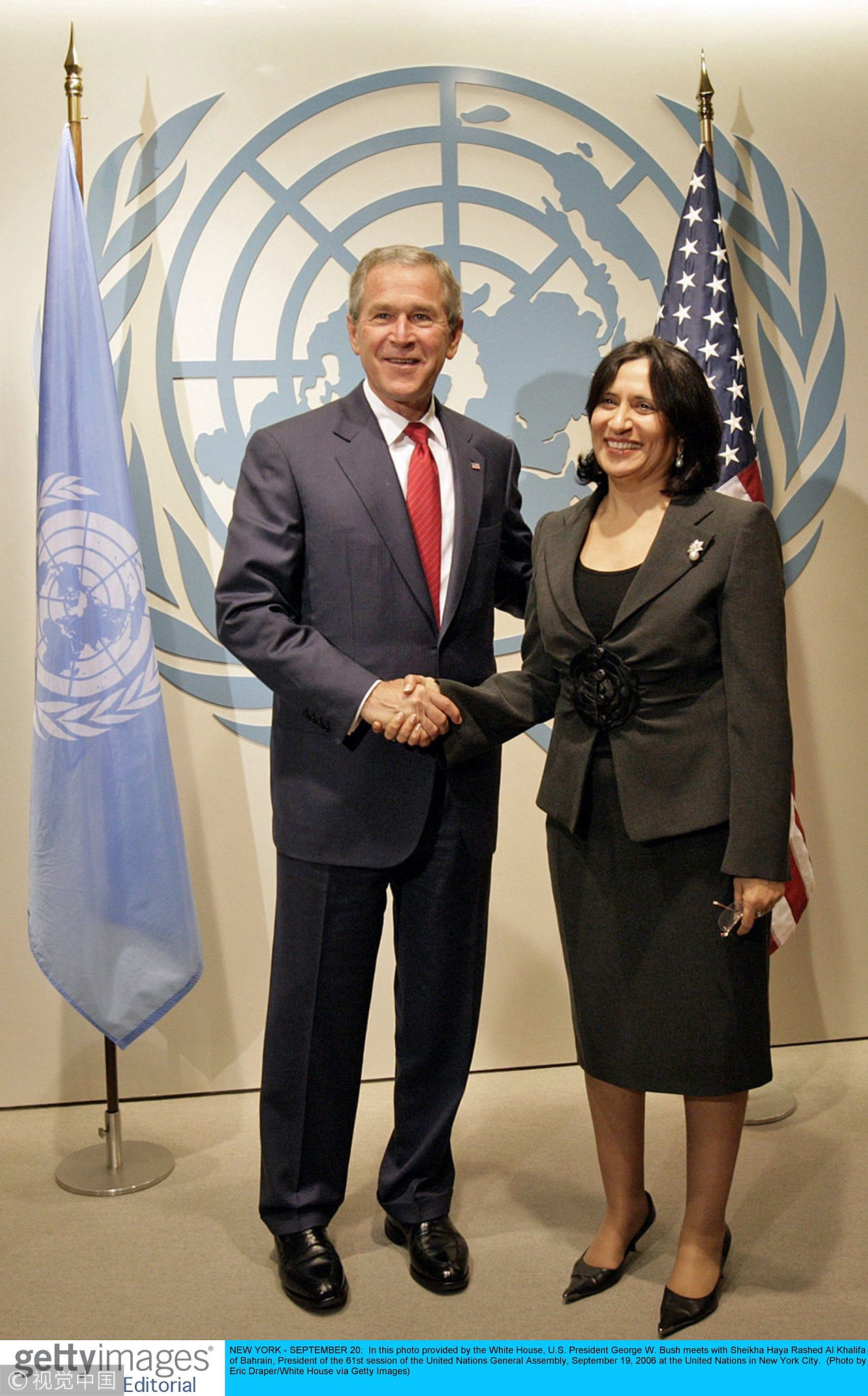
Haya Rashed Al Khalifa of Bahrain met with George W. Bush on Sept. 19, 2006 at the United Nations in New York City, according to a photo provided by the White House. / VCG Photo
Haya Rashed Al Khalifa of Bahrain met with George W. Bush on Sept. 19, 2006 at the United Nations in New York City, according to a photo provided by the White House. / VCG Photo
This brief look at their pasts also offers a telling portrait of how much the world has progressed in the last half century, but also just how much further it has to go to promote gender equality.
As former US First Lady Eleanor Roosevelt stated in a declaration on the participation of women in the work of the UN: "[Women must] recognize that the goal of full participation in the life and responsibilities of their countries and of the world community is a common objective," and nowhere is that more important than at the UN itself.
A year ago, UN Secretary General Antonio Guterres introduced his Gender Parity Strategy. It intends to make female empowerment a priority within the UN.
"We should achieve parity at senior levels by 2021, and across the board by 2028,” Guterres said.
Still, in the male-dominated world of the UN, reaching 1:1 is more than a question of numbers - it is a question of culture. "You need to change the mentality, and the mentality so far in the organization, as in many other workplaces, enterprises, companies [and] governments, universities, has always been male-dominated," said Ana Maria Menendez, UN under-secretary-general and senior adviser on policy.

SITEMAP
Copyright © 2018 CGTN. Beijing ICP prepared NO.16065310-3
Copyright © 2018 CGTN. Beijing ICP prepared NO.16065310-3